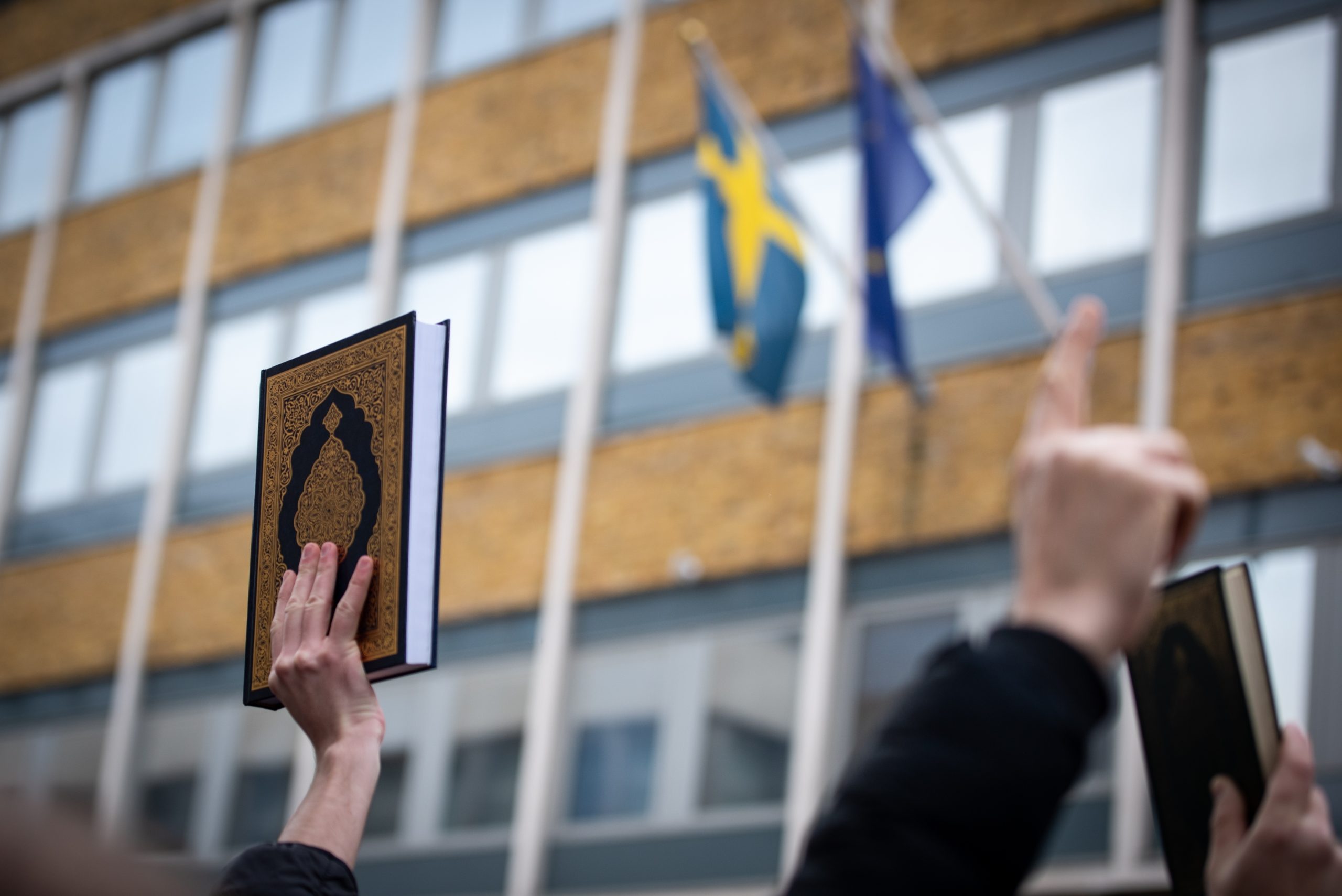Doha has adopted an unwavering stance in the face of Islamophobia globally, being one of the few to stand with utmost intolerance towards anti-religious hate crimes.
Almost 38% of Swedes want the burning of the holy Quran to be banned in Sweden, according to new research.
Almost four out of 10 of Swedes support prohibiting the burning of the Swedish flag and the sacred texts of the three major world religions. However, around 50% of Swedes (every second Swede) are opposed to such a ban, research company Novus gathered.
Through the report, Novus aimed to examine the number of Swedes who perceive burning the Quran as a means to sabotage NATO membership. This perception was influenced partly by Turkish President Recep Tayyip Erdogan’s statement linking it to membership requirements and also by the very belief that it serves as a reason.
The report also gathered that there seems to be a perception that Russia actively influences such actions to undermine Sweden’s application to NATO.
One in every four Swedes believes that burning the Quran is primarily meant to hinder Sweden’s NATO membership, however a majority of 59% believe it is to provoke and protest against Islam.
96% of Swedes believe it is crucial to protect freedom of expression in Sweden, with 68% considering it highly important and 28% considering it somewhat important.
The hesitancy likely arises from the question of whether burning the Quran should be permissible under the banner of freedom of expression.
Regarding Quran burning, 38% of Swedes want it to be prohibited. Similarly, the same proportion of people want to ban burning the Swedish flag, the Torah, and the Bible. This shows that there is no significant difference in support for prohibiting the burning of various religious texts as the level of support remains consistent, the report said.
An interesting national difference exists between the Moderate Party (M), the Sweden Democrats (SD), and other parties. SD and M supporters are more inclined to ban the burning of the Swedish flag, while followers of other parties are more likely to advocate for banning the burning of religious texts.
Muslim world reacts
The report comes amid a score of calls from Muslim countries calling on the Swedish government to hold the perpetuators accountable.
Qatar, among other countries, has condemned the incidents and slammed them as a provocation of the feelings of millions of Muslims around the world. Top Qatari officials have come out to speak on the double standard approach towards Islamophobia in Europe.
Qatar’s outspoken Minister of State for International Cooperation Lolwah Al Khater pointed towards the “puzzling” lack of accountability regarding religion-based hate speech, especially against Muslims, despite legislations in favour of other minorities being easily approved.
“We remain puzzled by the opposition that some countries expressed to stopping religion-based hate speech especially against Muslims, while they themselves introduce new legislations and statements every day defending new self-defined minorities,” maintained Al Khater.
“By the same token STOP ISLAMOPHOBIA.”
The stances of certain European governments in allowing and enabling the repetition of such incidents based on legal arguments surrounding freedom of speech and individual rights has prompted many to point out the double standard approach to state condemnation of religious hate crimes.
The Organization of Islamic Cooperation (OIC) renewed calls on Denmark to take measures to halt repeated Quran burnings on Sunday as Danish authorities vowed to explore “legal” measures against such stunts.
The Danish government announced on the same day that it is proposing new measures against cultural and religious-based attacks in an OIC meeting on Monday.
Denmark’s latest statement said Quran burning incidents on its lands “have reached a level” where the European country is seen as a facilitator “of insult and denigration” of cultures and religions.
“The Danish government has clearly distanced itself from and condemned the burnings of the holy Quran. The burnings are deeply offensive and reckless acts committed by few individuals. These few individuals do not represent the values the Danish society is built on,” the statement stressed.
Denmark also said the actions “play into the hands of extremists” and spread divisions at critical times.
Last month, Iraqi migrant Salwan Momika staged a provocative move in Sweden with the permission of Swedish authorities, followed by another incident on 20 July in which he stepped on the holy scripture.
The OIC had responded to the move by suspending the status of Sweden’s special envoy to the bloc as Iraq expelled the Swedish ambassador in Baghdad. Qatar had also summoned the Swedish ambassador in protest of the burning of the Quran.
The Gulf state was also among a list of countries that voted in favour of a United Nations’ motion that called on nations to step up their efforts to combat religious hatred.
The vote drew 12 rejections, the majority of which were European states, all of which were accused by activists of taking a double-standard approach in addressing hate speech.
Since the start of the year, far-right leaders in Europe – Denmark, the Netherlands and Sweden – have launched provocative Quran burning stunts that have triggered global outrage and drew condemnation from Muslim countries, including Qatar.







